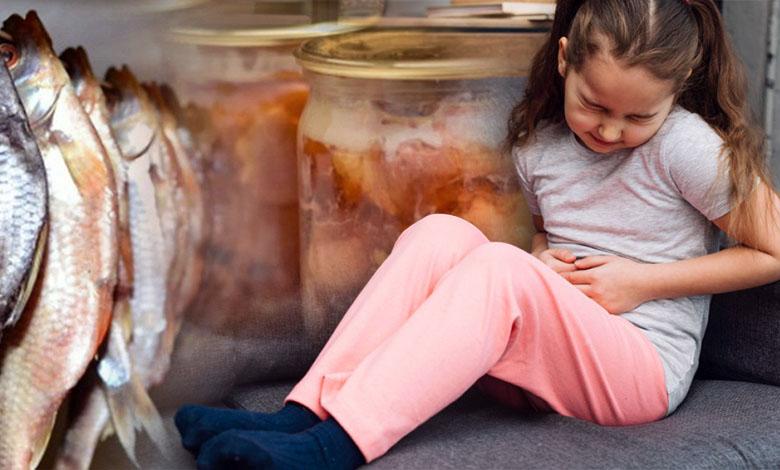Botulism in Children: A Deadly Threat in Wartime

At a time when the war destroyed the usual household practices and put parents in front of many new challenges, the invisible threats that sneak up from the home kitchen require special attention. One such threat is botulism, a rare but deadly poisoning that is increasingly affecting children. In a period when eating habits have changed, access to quality products has become uneven, and control over food preparation is less reliable, cases of botulism among the smallest Ukrainians have an alarming trend of growth.
Alarm signal from Rivne region: children in the hospital because of canned meat
On June 24, 2025, two children, aged 3 and 8, were admitted to the hospital in the village of Nemovichi, Sarnensky district, Rivne region. According to the Rivne Regional Center for Disease Control and Prevention, the day before the children consumed homemade canned meat, after which they developed classic symptoms of botulism: weakness, dizziness, impaired vision and speech.
These symptoms, which at first glance look like a common malaise or fatigue, are early signs of the action of botulinum toxin, one of the most powerful in the world. If left untreated or delayed, it blocks nerve signaling in the human body, which can cause muscle paralysis and even respiratory arrest.
What is botulism and why is it so dangerous?
Botulism is an acute toxic poisoning caused by eating food contaminated with botulinum toxin. This toxin is produced by the bacterium Clostridium botulinum, which multiplies in anaerobic conditions, that is, where there is no oxygen. An ideal environment for its development is improperly sterilized home canned food — especially meat, mushroom, or fish.
Children’s bodies are particularly vulnerable to botulinum toxin. In children, symptoms may appear faster, and the course of the disease may be more aggressive. In case of untimely introduction of antitoxic serum or delay in hospitalization, the consequences can be fatal.
Why has the problem worsened now?
With the beginning of the full-scale invasion, a large part of Ukrainians was forced to move to the countryside or to relatives in safer regions. There, many families have returned to the practice of home canning, especially meat, because it has become more difficult to buy quality products, and it is more difficult to store them due to power outages and unstable operation of refrigerators.
At the same time, access to professional quality control, laboratory testing of products and a sufficient level of knowledge about safe culinary processing has significantly decreased. Parents often consider homemade food to be safer, but it is one of the main threats to children’s health today.
How to recognize botulism: symptoms that cannot be ignored
The first signs of botulinum toxin poisoning usually appear 2-12 hours after eating contaminated food. In some cases — after a day or more. The most characteristic symptoms:
– sudden weakness, lethargy, apathy;
– double vision, blurred vision, drooping eyelids;
– difficult speech, unclear diction;
– problems with swallowing;
– dry mouth;
– later – breathing disorders, muscle weakness, up to complete paralysis.
In children, symptoms often begin with non-specific manifestations: lethargy, drowsiness, refusal to eat. This makes diagnosis at an early stage difficult.
What to do if botulism is suspected
In case of symptoms after eating canned food, you must:
- Seek medical help immediately. Self-medication is unacceptable.
2. Collect information about the product used by the child: when it was opened, how it was stored, who prepared it. This will help doctors.
3. Leave leftovers for analysis if possible.
4. Do not resort to gastric lavage on your own without a doctor’s recommendation — this can worsen the condition.
Tips for parents: how to protect a child from botulism
In today’s environment, every father or mother should be not only caring, but also prudent. Here are some practical tips:
- Refuse to use meat, fish and mushroom home preserves if their origin is questionable or if they have been stored for more than a year. Do not give such products to children under any circumstances.
- Avoid eating canned goods with a blown lid, a changed shape of the can or an unpleasant smell after opening – these are the main signs of possible contamination.
- Do not buy homemade preserves at the market or from the hands, even if they are familiar sellers. Without laboratory analysis, it is impossible to assess the safety of the product.
- Never feed your child questionable foods. Especially if the product was prepared a long time ago or stored without a refrigerator.
- Teach your child not to eat “unknown” things when visiting or at school, especially if the food has an unusual look or smell.
- Be careful with canned pickles and lard, even if they are meat-free. The danger remains in the absence of oxygen.
- Carefully sterilize jars, lids and dishes during conservation. If you still decide to cook at home, do not violate the recipe rules, the sterilization time is crucial.
In peacetime, botulism was considered a rare disease. Today, it is a threat that easily penetrates everyday life due to oversight, habit or haste. In the conditions of war, when there is already too much unpredictability, parents should maximally control what ends up on the children’s plate. This is the simplest and most effective way to save children’s lives.





